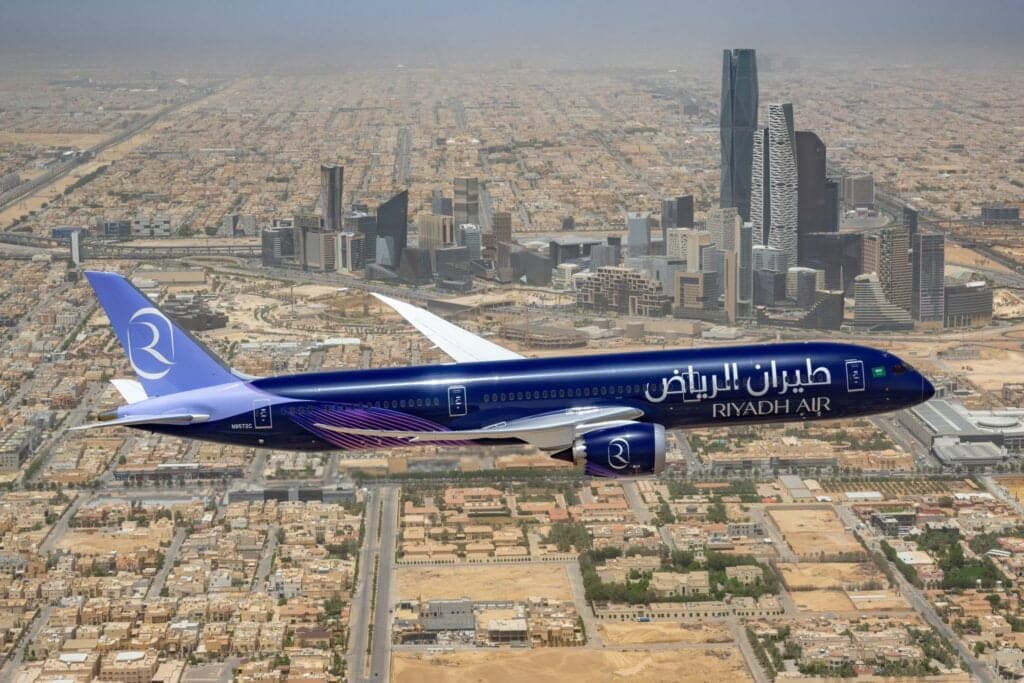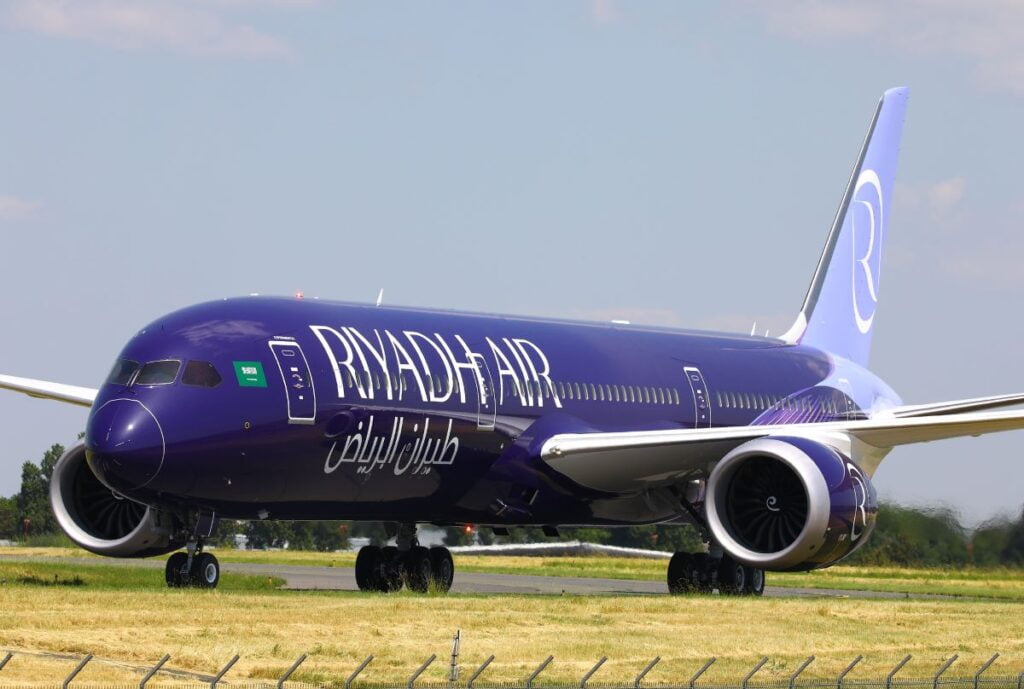Riyadh Air, the latest national airline of Saudi Arabia, has quickly become a topic of interest in the aviation and travel industries. Established in March 2023, this new flag carrier aims to transform the Kingdom’s connectivity with the world, aligning with Saudi Arabia’s Vision 2030. Here’s everything you need to know about Riyadh Air, from its foundation to its future ambitions.
The Genesis of Riyadh Air
Riyadh Air was formally announced by the Crown Prince of Saudi Arabia, Mohammed bin Salman, marking a significant milestone in the Kingdom’s aviation sector. The airline is headquartered in Riyadh and operates from King Khalid International Airport, positioning itself as a digital and sustainable aviation leader.

Vision and Ambitions
Riyadh Air is set to redefine global connectivity with plans to fly to over 100 destinations by 2030. The airline’s mission is deeply rooted in sustainability, safety, and delivering exceptional travel experiences. By leveraging digital advancements and assembling a team of global aviation experts, Riyadh Air aims to set new standards in the industry.
Fleet and Network
The airline has made headlines with its strategic fleet acquisitions. In its initial phase, Riyadh Air has ordered 39 Boeing 787-9 aircraft, with options for 33 more, indicating its commitment to a modern, efficient fleet. These aircraft will serve a mix of domestic and international routes, emphasizing Riyadh’s role as a global aviation hub.
Economic Impact and Job Creation
Riyadh Air is expected to play a pivotal role in Saudi Arabia’s economic diversification efforts away from oil. By connecting Riyadh with the world, the airline will contribute to the Kingdom’s tourism strategy, aiming to attract 100 million annual visits by 2030. The airline’s operations are projected to generate over 200,000 direct and indirect jobs, significantly impacting the local economy.
Leadership and Innovation
Chaired by Yasir Al-Rumayyan, Governor of the Public Investment Fund (PIF), and led by aviation veteran Tony Douglas, Riyadh Air’s leadership team is composed of seasoned professionals from around the globe. This diversity ensures a blend of international experience and innovative approaches to aviation management.
Sustainability and Safety
Riyadh Air is committed to adopting best practices in sustainability and safety. The airline’s approach includes modern aircraft equipped with the latest technology, aiming to minimize environmental impact while ensuring the safety and comfort of its passengers and crew.
Cultural Significance
The airline’s brand identity, inspired by the lavender blossoms native to Saudi Arabia, reflects the Kingdom’s hospitality and cultural heritage. Riyadh Air aspires to be the nation’s window to the world, embodying the elegant movement of birds in flight and the curves of Arabic calligraphy.

Looking Forward
With operations set to commence in 2025, Riyadh Air is on a fast track to becoming a key player in the global aviation industry. The development of King Salman International Airport, among other infrastructure projects, will further enhance Riyadh’s capacity to welcome travelers from around the world, making it a formidable competitor in the region.
Riyadh Air represents not just the future of travel in Saudi Arabia but also a strategic step towards realizing the Kingdom’s broader economic and cultural ambitions. As it gears up for its first flights, the airline’s journey will be closely watched by industry observers and travelers alike, eager to see how it will shape the future of global aviation.
